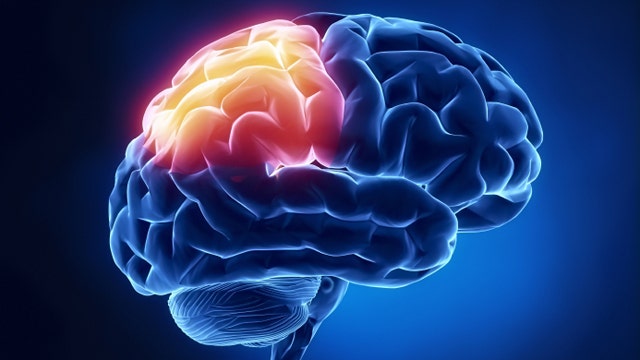New technology saving our soldiers?
In 2012, more U.S. soldiers died from suicide than at the hands of their enemy. See how new technology uses brain imaging to help doctors match soldiers suffering from PTSD and traumatic brain injuries with the proper treatment
It’s like Match.com for soldiers returning home from war.
But instead of pairing them with a mate, new technology called PEER Interactive is helping doctors match heroes suffering from post-traumatic stress disorder (PTSD) and depression from traumatic brain injuries (TBI) with the proper treatment.
“It's one of the biggest emerging public health issues we've got,” George Carpenter, CEO of CNS Response, the California neuroscience company behind PEER Interactive told FoxNews.com. “They're now estimating that about a million soldiers of the 2.5 million that were in Afghanistan or Iraq will develop depression, PTSD, or blast injury.”
Every year, there are 38,000 suicides in the United States alone. And 2012 saw more casualties among American troops as a result of suicide than in combat, with 349 soldiers taking their own lives.
“None of these kids in basic training were ever told that…the person most likely to kill you, is yourself,” Carpenter said. “There's no test in this area, unlike every other part of medicine. There's blood tests, X-rays, bone scans, (but) for psychiatry, diseases of the brain, there really isn't any test that says which medication you'll respond to.”
Research shows that 60 percent of the time, medications prescribed to for conditions like depression, PTSD and anxiety don’t work for the patients taking them.
Psychiatrists at CNS Response realized that medication failure in patients with mental disorders was, in large part, due to the fact that there were no standardized medical tests available for doctors to help prescribe the right medications for their patients.
To address this need, CNS Response created the psychiatric electroencephalography evaluation report, or PEER, by collecting data over a 20 year period. Using electroencephalograms (EEGs) to measure brain activity in depressed patients, researchers were able to identify biomarkers in patients’ brains and collect outcomes for the medications used to treat each patient. They found that patients with similar brain abnormalities shown in the scans responded better to certain medications.
“We now have 35,000 of these correlations and what it does is it says, like when you buy a book … on Amazon.com, it'll say ‘The people who bought this book, like you, also bought this one and this one,’” said Carpenter. “Our test says that people who have brains like yours, specific abnormalities at these localized locations in the brain did not do well on the traditional antidepressants, did do well on one of the older antidepressants or an anticonvulsive.”
Doctors using the PEER Interactive database to help predict which medications their patients will respond to have reported their success rates have improved two to threefold.
CNS Response has teamed up with Walter Reed National Military Medical Center in Washington D.C. for a study of 2,000 soldiers using the PEER Interactive database to treat various mental disorders that heroes are suffering from when they return home from war.
For more information visit CNSResponse.com. If you or someone you know wants to enroll in the study at Walter Reed Medical Center, call (888) 683-7741.









































